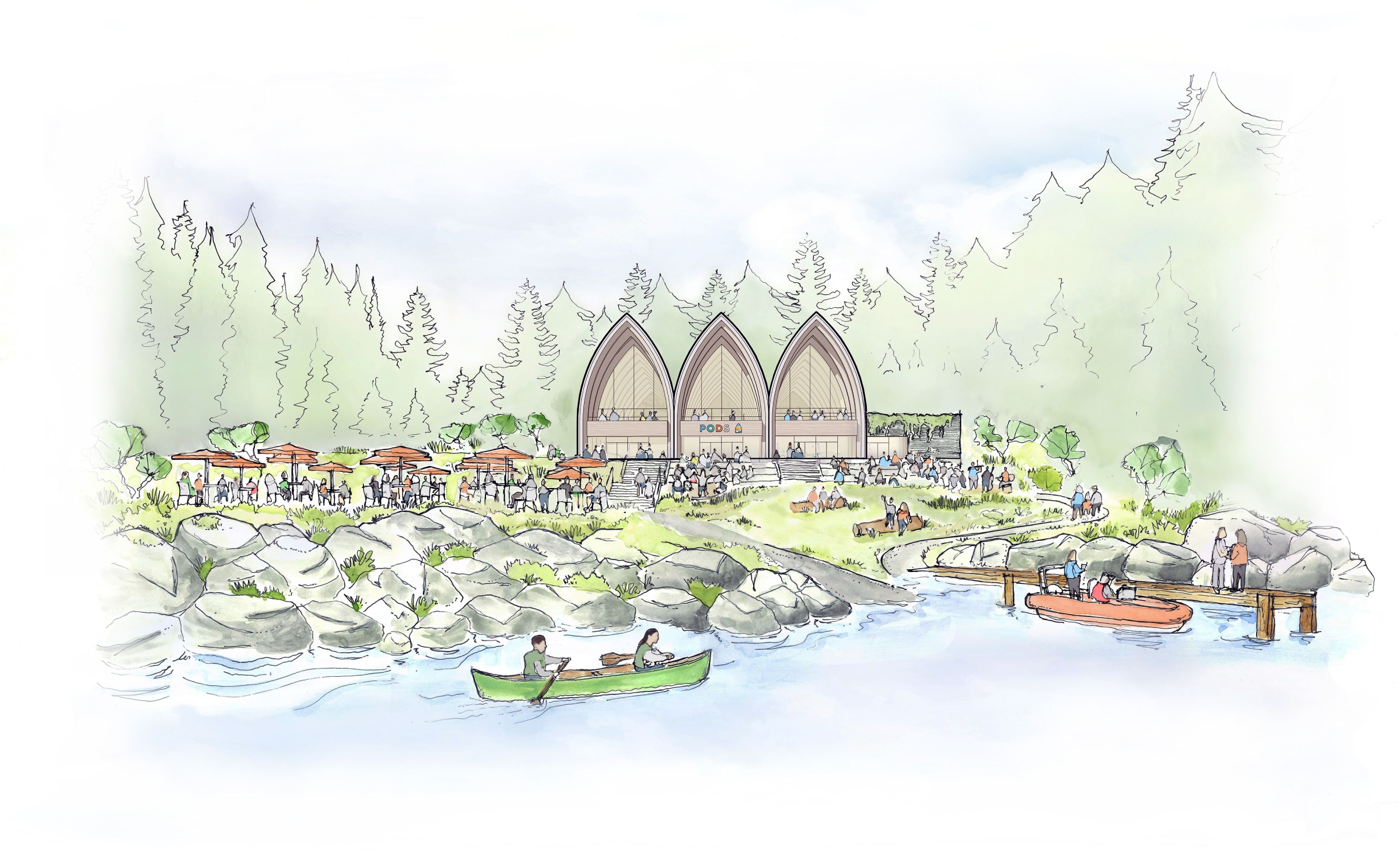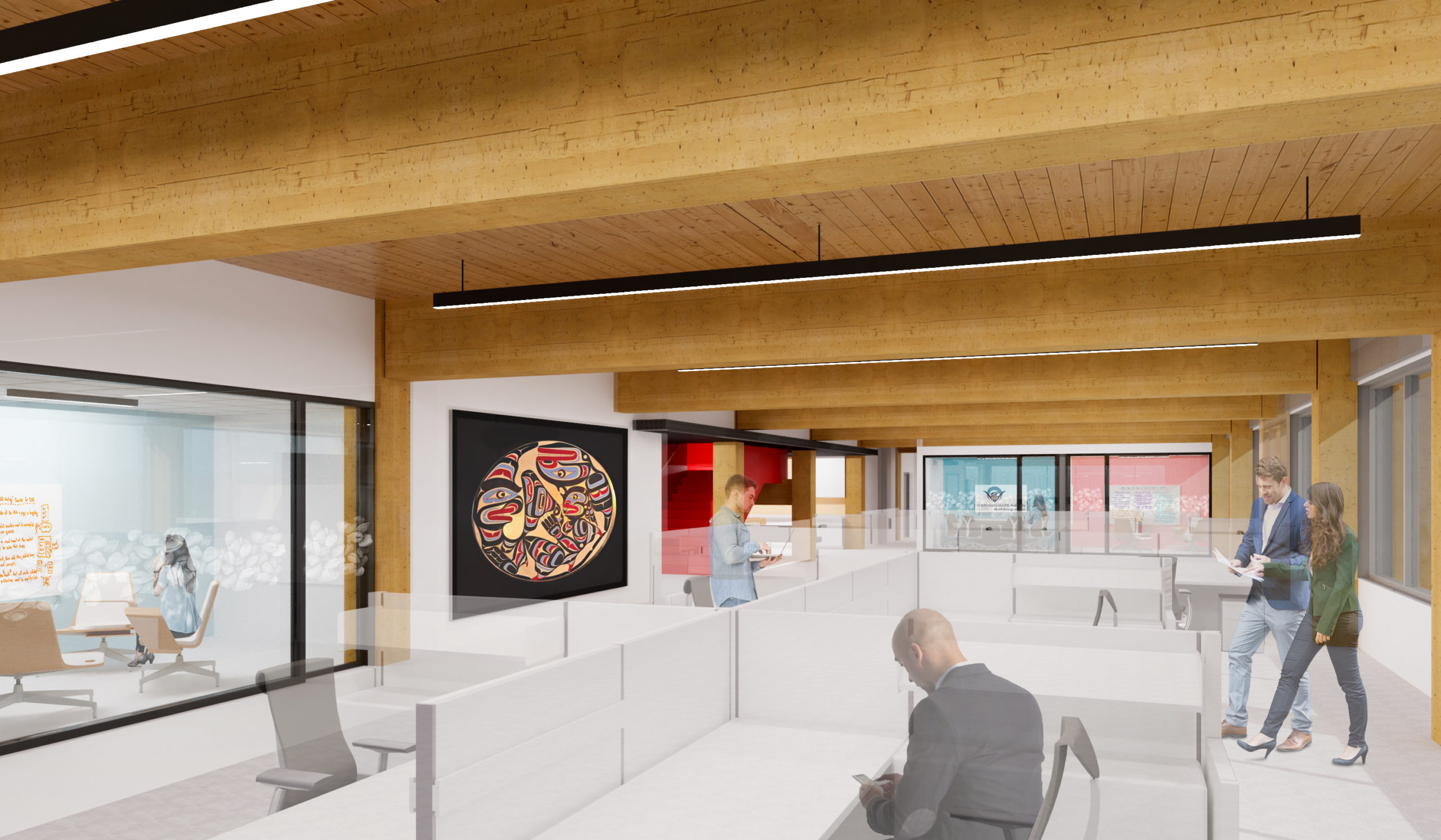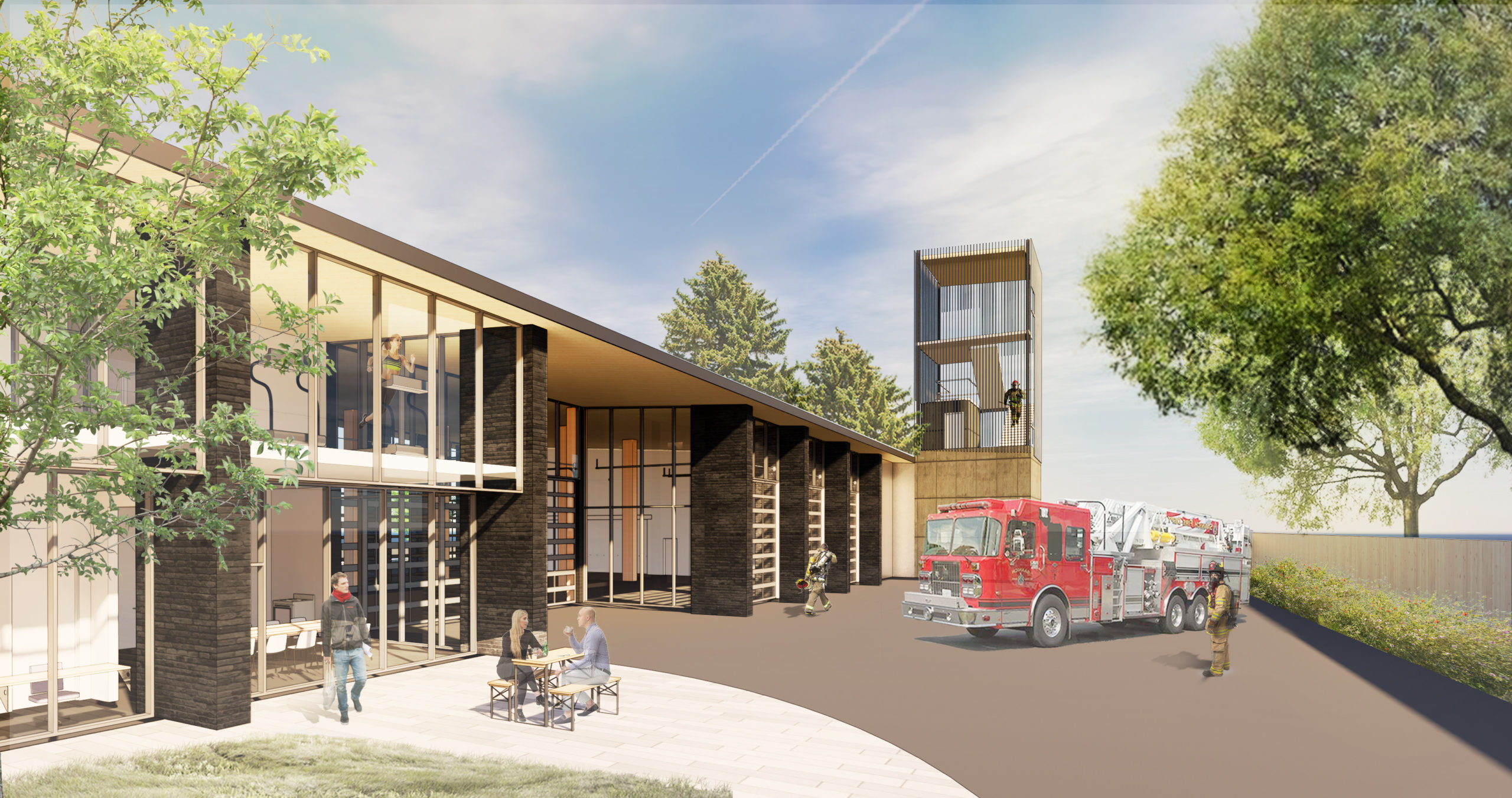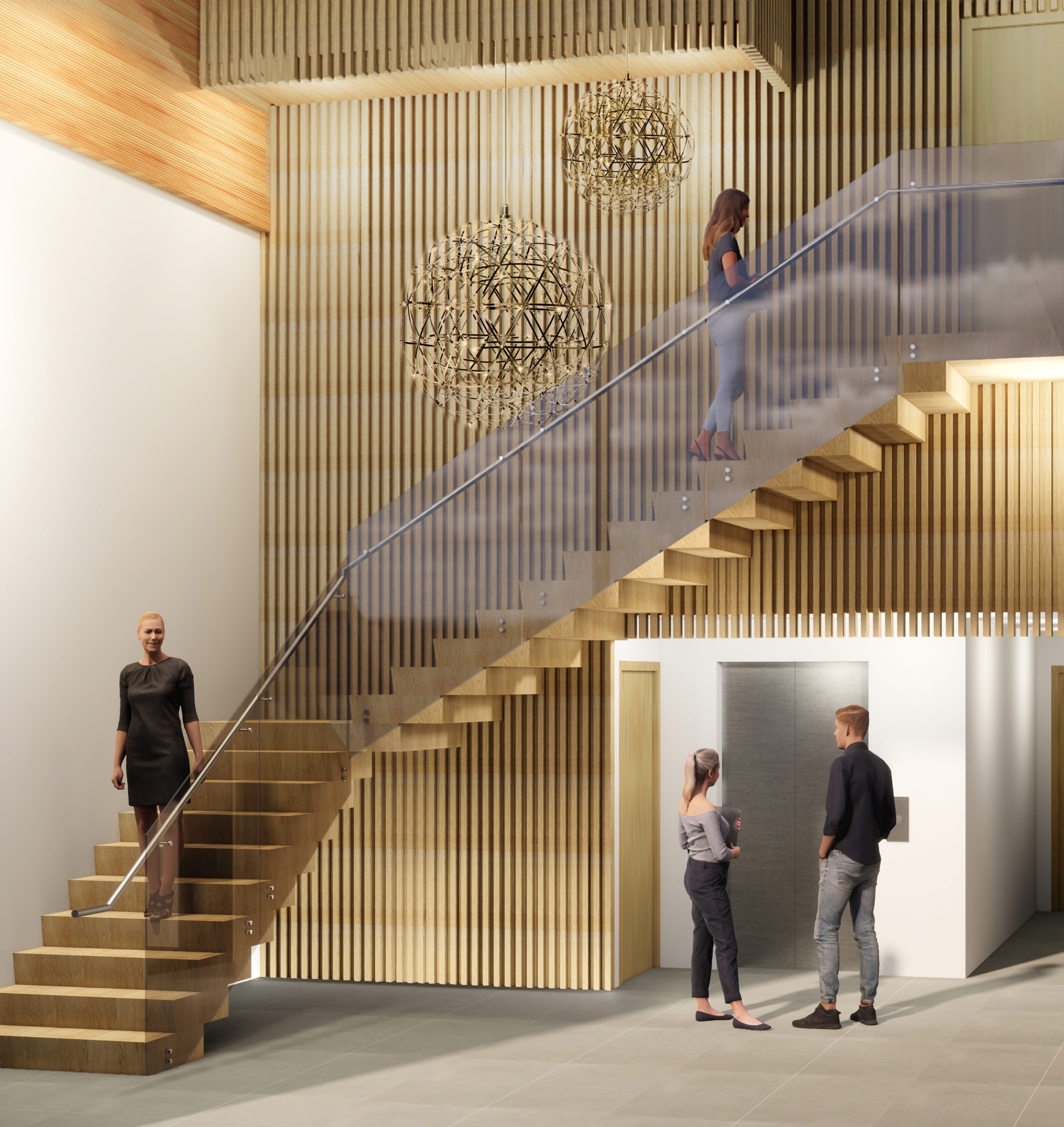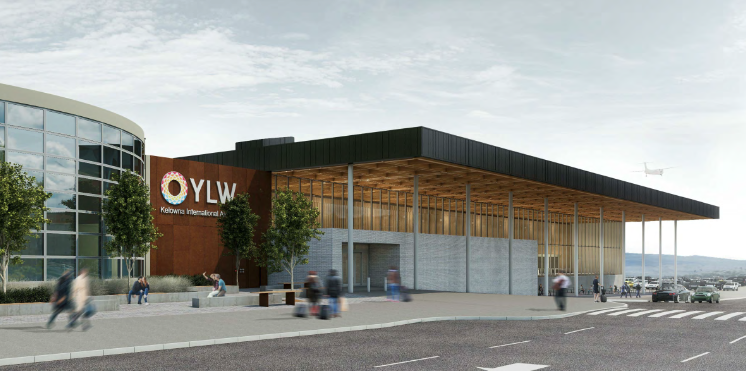An iconic mass timber multi-use community structure
The Pender Harbour Ocean Discovery Station (PODS) building will be an iconic mass timber multi-use community structure dedicated to marine education, recreation, research and preservation. The building will be net-zero carbon with state-of-the-art energy efficient building systems.
- A two-storey, net-zero carbon mass timber building dedicated to marine research, recreation and education.
- Uses a range of wood products to create a nearly all-wood building, including glue-laminated timber (glulam) beams, columns and arches and glulam floor panels.
An iconic mass timber building to promote marine research and preservation
The Pender Harbour Ocean Discovery Station (PODS) will be a marine facility on B.C.’s Sunshine Coast. The station will provide research and education services to the surrounding region, focusing on marine ecology, oceanography and environmental studies. It will also offer a range of recreational activities such as kayaking, paddle boarding and whale watching.
The two-storey, net-zero carbon mass timber building will be a signature building on the waterfront with three ‘pods’ resembling upturned wooden boats, an iconic expression of the region’s maritime culture. Its striking form, state-of-the-art energy-efficient building systems and engaging ecological programs are expected to attract substantial visitors while showcasing the benefits of mass timber.
The PODS building design incorporates wood in its construction wherever possible, using a range of mass timber products including glue-laminated timber (glulam) beams, columns, arches and floor panels. The interior skin will also be clad in Douglas-fir wood strips, with gaps for acoustic considerations.
Net-zero carbon and innovative energy-efficient building systems
PODS aims to be the first Canadian Green Building Council Zero Carbon Version 2 certified mass timber building in the region. The project will use energy-efficient building systems such as ocean heat exchange and earth tubes in combination with a highly efficient building envelope to minimize energy consumption.
PODS will utilize energy-efficient building systems and cross ventilation from oceanic prevailing winds to help cool the building in the summer months. Meanwhile, the overhang of the pods will protect the glazing from overheating by reducing the solar heat gain. Landscaping will be designed with drought-tolerant vegetation, trees for shade and cooling and native plant species to promote biodiversity, provide wildlife habitat and restore the natural ecological function of the previously degraded site.
The Mass Timber Demonstration Program (MTDP) provides funding for incremental costs in the design and construction of buildings that showcase emerging or new mass timber and mass timber hybrid building systems and construction processes. The program supports jobs and employment recovery in the design, engineering, construction, and product manufacturing sector. BC industry will benefit from lessons learned, results, and research findings that can help support future mass timber projects in the province. Learn more.
